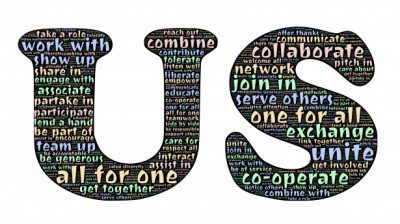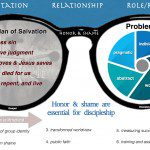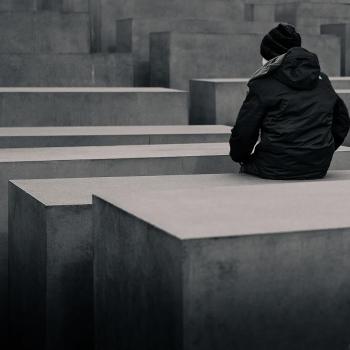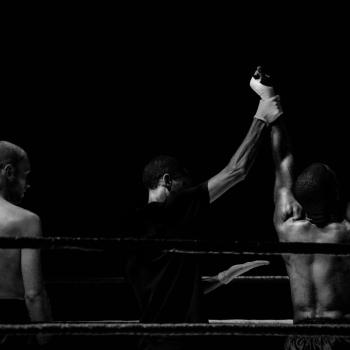In today’s guest post, Martin Munyao shares a powerful testimony about how the gospel changes people from an honor-shame perspective.
Having earned a Th.M. from Daystar Academy of Nairobi, he previously served as a pastor and theology teacher in Kenya. He is now working on his Ph.D. at Concordia Theological Seminary.
For the past century, conversion into Christianity has meant different things for Kenyans (I guess for other regions in Africa too). During the colonial days, i.e. late 1890’s through 1950’s conversion to Christianity was seen as abandonment of African Traditional Religious values and it’s practice to join a strange sect. During the struggle for independence from British in Kenya, 1950’s through 1963 and even early after independence conversion to Christianity was seen as abandoning Africanism to join a White man’s religion. That was met with a lot of hesitation and reservation from most Kenyan people.
Becoming a Christian was interpreted as abandoning your own community to join an unknown community.

It often left the new converts with a great deal of shame, humiliation and separation to deal with. That is why alternative communities such as The Kenyan African Union, The Young Kavirondo Association, Gikuyu-Embu-Meru-Akamba Associations were formed; groups that later became the MAU MAU who engaged in guerilla warfare to fight for our independence. On the religious side of things, alternative religious communities such as African Initiated Churches (AICs) were formed. Identifying with these African groups was the noble thing to do.
Groups define “Who I am”
However, in the recent days all this has changed as there is no more independence to fight for, and other dynamics have come to play in the 21st Century Kenya. In the contemporary Kenyan culture, groups and group values are essential in defining “who I am.”
For example, every young man is circumcised with fellow age mates. This initiation ceremony is carried out in the woods where boys of the same age are set apart for one month where they don’t get to see their family members, especially their mothers or sisters to avoid defilement. By the end of the 30 days during which boys are taught values that will make them honorable and responsible men in the community, they will have formed a very strong community bond of age mates. One can die for a fellow brother whom you went through initiation with.
In my case, this group literally became family for me.
“Us” but never “Me”
When I heard the gospel and accepted Jesus, I had to join the church. Just like any other young man, becoming a Christian seemed like betrayal in my friend’s eyes. It actually felt like I was literally ripping off a piece of me from myself.
This is because we were only taught to think of ourselves as “Us”, never “Me” again!

To join the Christian family I accepted a gospel that said that I had ‘broken laws’ and needed to confess with my mouth so as to gain a ‘personal salvation.’ This was the hardest thing for me to grasp as living with the community of boys in the watch of elders and bigger brothers there is no way I could have possibly broken a law!
In order to be seen as a faithful follower of my new found faith, I had to transfer my allegiance from my age group members to the church.
In my foundational days of Christianity, I remember hiding on numerous occasions, whenever I met with my former friends because not only did they see me as a traitor, I actually felt like one. I hid my face from them. If only I knew what I know now perhaps my reaction would have been different.
Salvation in Community
Salvation in most Kenyan communities is a transfer of identity and allegiance from one group to another.
It’s a switch from an ordinary group membership (one’s tribal background and its practices) to an honorable community of believers. The gospel as taught by Western missionaries is not packaged in a manner to biblically frame this status transfer to an African audience.
Ephesians 2:11-22 comes to my mind. Hearing the gospel and conversion in a typical Kenyan community is transferring of allegiance to a more superior family; it’s becoming “… members of the household of God.” Sometimes this decision is made individually, but mostly it’s a communal decision.
For example, when in a family the father (head of the house) believes in Christ and is converted, most likely his wife and children, nephews and nieces will follow suit. It is the honorable thing to do. When Christ established his reign and rulership in a noble man’s heart, those who respect the man will most likely want to acquire the noble man’s new status.
Discipleship in a Kenyan context ought to help believers live a faith that is not designed to overthrow their cultural values that don’t contradict the gospel.


















